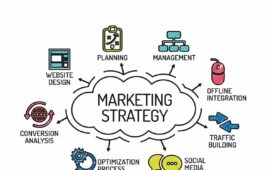Crisis moments reveal the true strength of leadership. In small businesses, where resources may be limited and challenges hit close to home, effective leadership can mean the difference between recovery and lasting damage. Gregory Hold, Founder & CEO of Hold Brothers Capital1, recognizes that developing leaders who can think clearly, act decisively and support their teams during difficult times is essential for long-term success.
Unlike large corporations, small businesses often rely on a tight-knit group of people who wear many hats. It creates both a challenge and an opportunity. Leaders must be ready to step up when conditions change suddenly, and organizations must create the conditions that help them grow into that role.
Focus on Communication Skills
Clear, confident communication is one of the most important traits of a leader during a crisis. Teams look to leaders for direction, clarity, and reassurance. Small businesses can help emerging leaders build this skill through practice. Opportunities like leading meetings, delivering updates, or handling client communications give people the chance to refine their approach.
Role-playing scenarios where leaders must share tough news or guide a team through uncertainty can also help. The goal is not perfection, but progress. Leaders who communicate clearly help reduce fear and confusion when the stakes are high.
Encourage Decision-Making Under Pressure
Crises often require fast decisions with incomplete information. Small businesses can help future leaders prepare for this by creating opportunities to make decisions in lower-stakes settings. It might include leading small projects, handling vendor negotiations, or resolving client issues.
By practicing decision-making, emerging leaders learn to weigh risks, consider options and act with confidence. Debriefing after decisions, whether they went well or not, helps reinforce lessons and improve future choices. This hands-on experience builds the courage to take action when it matters most.
Provide Mentorship and Guidance
Mentorship plays a critical role in developing crisis-ready leaders. Small businesses can connect emerging leaders with experienced mentors who provide advice, share stories, and offer support. These relationships give future leaders insight into how others have navigated tough situations and encourage them to ask questions and seek guidance.
For companies such as Hold Brothers Capital, mentorship does not need to be formal. Simple check-ins, shared reflections, and open conversations can provide valuable lessons. Gregory Hold shares that leaders who learn from others’ experiences are better prepared to handle challenges with perspective and wisdom.
Promote Emotional Intelligence
In a crisis, emotions run high. Leaders who can manage their stress and support the emotional needs of others help keep teams steady. Small businesses can encourage emotional intelligence by offering training, providing tools for stress management, and creating a culture where empathy is valued.
Leaders who listen actively, show compassion and respond thoughtfully build trust. They help teams feel safe, even when circumstances are difficult to manage. This emotional strength supports clearer thinking and better decisions during high-pressure moments.
Encourage Cross-Training
Leaders who understand different parts of the business are better able to adapt during a crisis. Cross-training helps by giving future leaders exposure to various functions. It might include spending time with operations, finance, sales or customer service teams to learn how different pieces of the business fit together.
This broad perspective helps leaders make more informed decisions and coordinate efforts across teams during a crisis. It also builds stronger relationships within the organization, which supports collaboration when challenges arise.
Build a Culture of Reflection
Every business can face tough moments, but not every business takes the time to learn from them. Small businesses can help future leaders grow by creating space for reflection after challenges. It might mean holding debrief sessions after major projects, discussing what went well and what could be improved, or encouraging written reflections on lessons learned.
Reflection helps leaders turn experience into growth. It reinforces the idea that mistakes and successes both provide valuable insights. Leaders who embrace this mindset are more likely to adapt, improve, and guide their teams effectively during future crises.
Provide Access to Learning Resources
While experience is a powerful teacher, structured learning also plays a role. Small businesses can support leader development by providing access to books, webinars, workshops, or online courses focused on crisis management, leadership, and communication. Encouraging self-directed learning shows emerging leaders that growth is a priority and helps them build the knowledge needed to lead during uncertain times.
Even limited budgets can support learning. Many high-quality resources are available at low or no cost, and small businesses can also create learning groups where employees discuss ideas and share insights from their studies.
Model Calm and Integrity
Future leaders take their cues from the examples set by current leaders. Leaders who act with integrity, stay calm under pressure, and treat people with respect during a crisis provide a powerful model. Small businesses can reinforce this by recognizing and rewarding these qualities, making it clear that how leaders act during tough moments matters as much as what they accomplish.
When emerging leaders see these traits in action, they are more likely to adopt them in their own way. It helps build a leadership culture that supports resilience and ethical decision-making when it comes to mind.
Give Emerging Leaders a Voice
One of the most effective ways to develop leaders is to give them a seat at the table. Involve future leaders in planning discussions, problem-solving sessions, and strategy meetings. Ask for their input, listen to their ideas and encourage them to take ownership of solutions.
This involvement helps build confidence and ensures that leaders are ready to contribute during a crisis. It also helps organizations benefit from fresh perspectives and ideas, which can be especially valuable during challenging times.
Developing Leaders Who Rise to the Moment
Small businesses that invest in leader development build strength that lasts beyond any single crisis. By focusing on communication, decision-making, emotional intelligence and reflection, they help people grow into leaders who can guide teams through uncertainty. These leaders not only help businesses survive tough times, but they also help them emerge stronger, smarter, and ready for future success.
Crisis-ready leaders are not born. They are built through experience, support, and purposeful development. Small businesses that make this investment today can see the benefits when the next challenge comes.
1Hold Brothers Capital, is a group of affiliated companies, founded by Gregory Hold.






